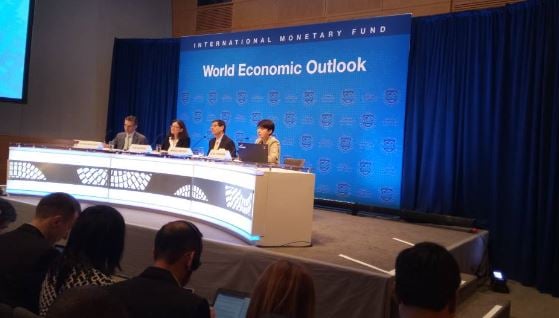
The International Monetary Fund (IMF) says Nigeria’s economy will grow faster than South Africa’s in 2017.
This is a reverse from the fund’s earlier projection in July that South Africa’s economy will grow by 1% in 2017 while Nigeria will experience a 0.8% economic expansion.
Speaking on Tuesday during the unveiling of the World Economic Outlook report at the organisation’s headquarters in Washington, Maurice Obstfeld, IMF’s chief economist, said rising political uncertainty has reduced consumer and business confidence in South Africa.
Advertisement
While Nigeria’s projected growth remains at 0.8%, South Africa’s contracted to 0.7%.
“Nigeria is expected to emerge from the 2016 recession caused by low oil prices and the disruption of oil production. Growth in 2017 is projected at 0.8% owing to recovering oil production and ongoing strength in the agricultural sector.
“However, concerns about policy implementation, market segmentation in a foreign exchange market that remains dependent on central bank interventions (despite steps to liberalise the foreign exchange market) and banking system fragilities are expected to weigh on activities in the medium term.”
Advertisement
In its July projections, the Bretton Woods institution had said the global economy would grow by 3.5% in 2017 and 3.6% in 2018.
At present, the institution said global economic output will increase by 3.6% in 2017 and 3.7 in 2018.
It also projected that the growth will reach 3.8% by 2021.
However, IMF urged countries to remain cautious as the growth currently experienced is fragile, advising that ambitious reforms are necessary to avoid a decline.
Advertisement
“Growth in oil exporting advanced countries is projected to recover. In 2017, it is forecast to rise to 1.4% in Norway and increase (by about 1.5%) to 3% in Canada.
“After averaging $43 a barrel in 2016, oil prices are expected to average $50.3 a barrel in 2017 (down from $55.2 a barrel in April 2017 WEO) and stay at about that level in 2018.”







